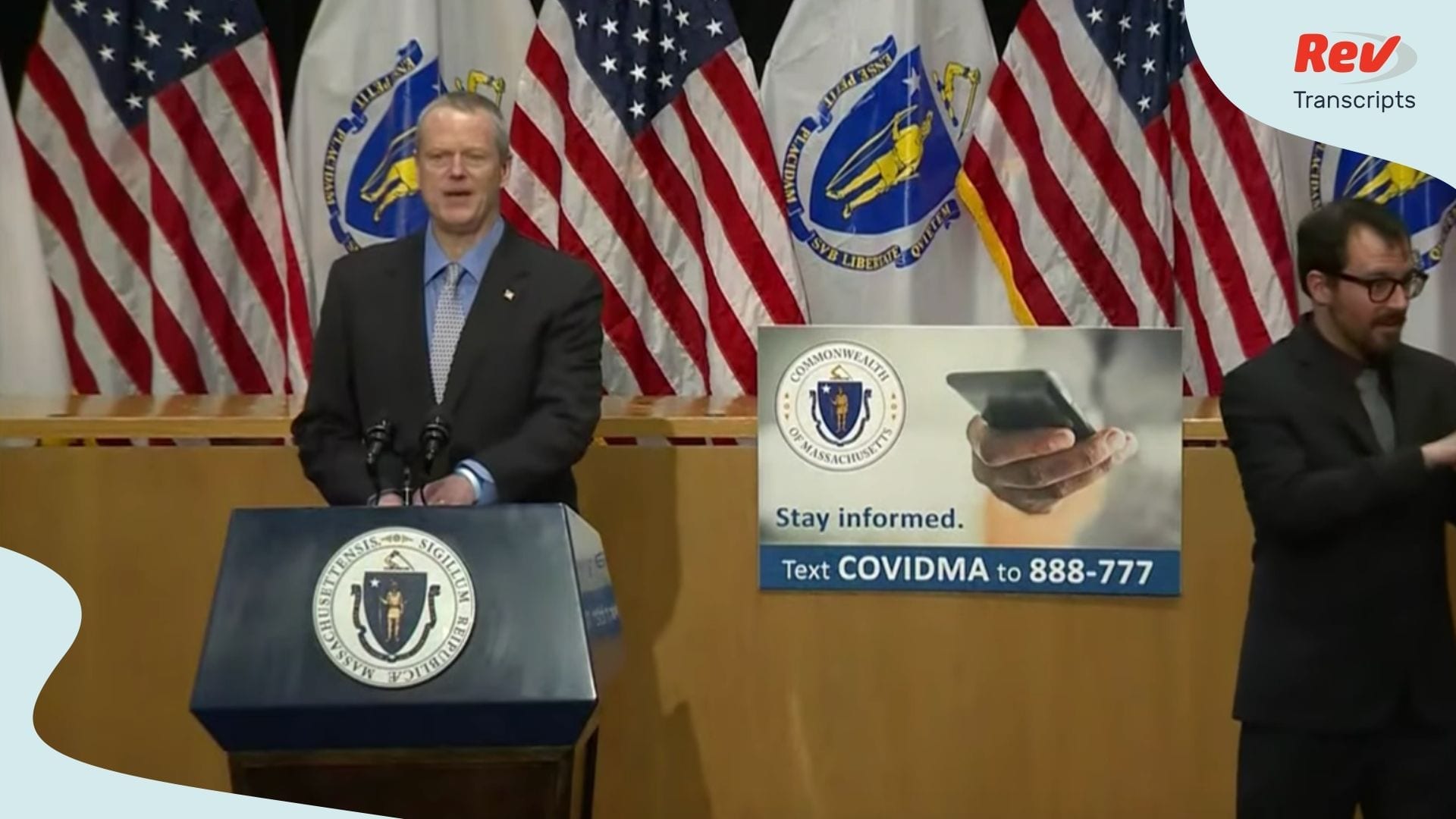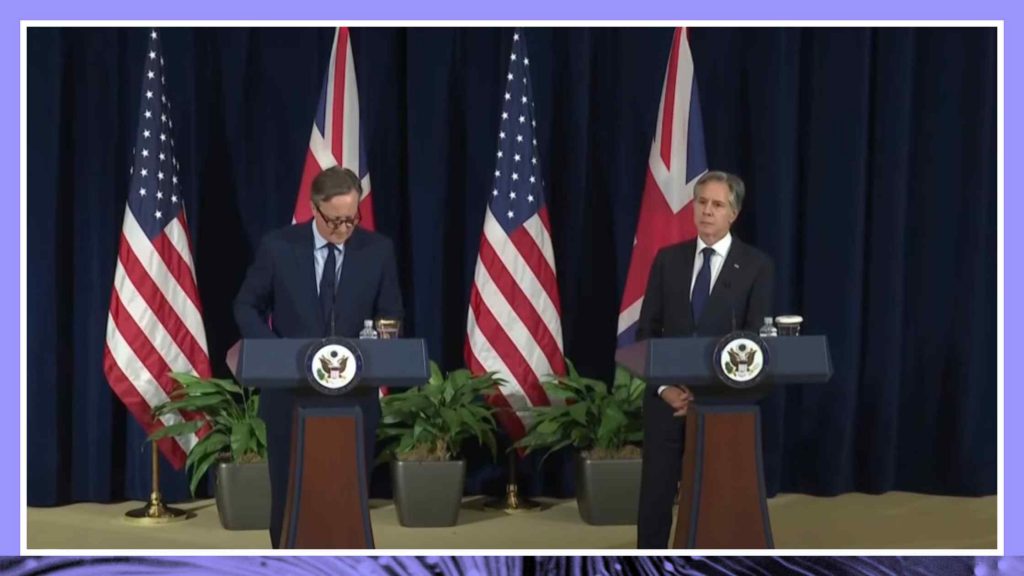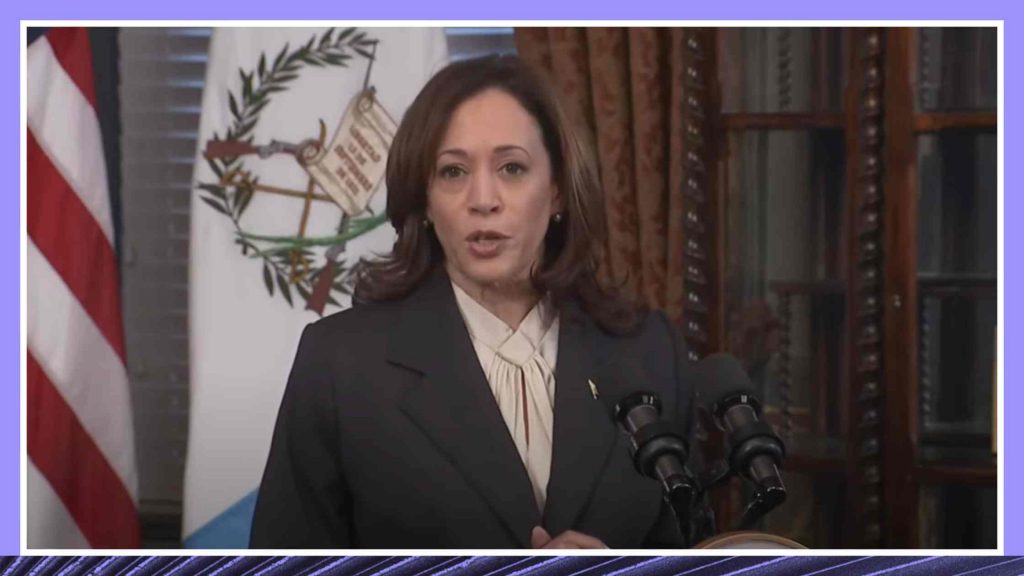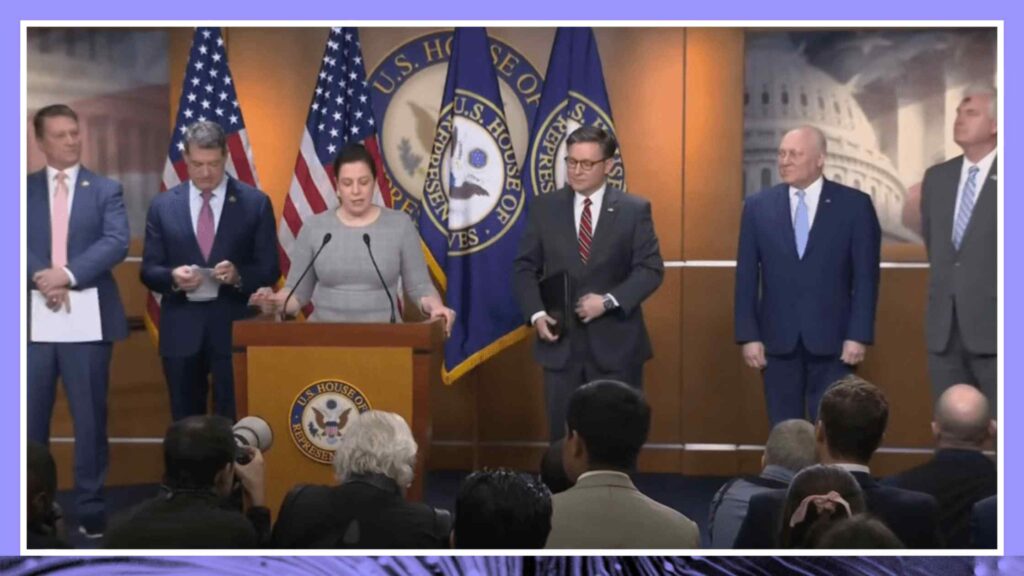Apr 3, 2020
MA Governor Charlie Baker Briefing Transcript April 3

Charlie Baker: (00:00)
… the case numbers in our planning efforts to increase medical and bed capacity for that surge when it arrives. Secretary Sudders and the command center had been working with hospitals to make sure they had the capacity that they need to treat future cases of COVID-19. We’re continuing to work with suppliers and with the federal government around much needed personal protective equipment. Those efforts are key to getting the Commonwealth prepared to treat patients. But there’s another critical part of this which involves efforts to increase the state’s testing capacity. As of yesterday we completed over 56,000 tests. So far we’re up to 20 labs conducting tests and as many know, we set a goal about 10 days ago to complete 3,500 tests a day. We’ve been consistently hitting or exceeding that goal and yesterday reported almost 5,000 tests alone. We’re going to continue to expand opportunities for new testing capacity and new testing sites as labs keep up with our growth and capacity.
Charlie Baker: (01:06)
On Sunday, for example, there’ll be a new drive through testing site for first responders that will open in Foxborough at Gillette Stadium in the parking lot where they expect the test up to 200 first responders a day. This is a great collaboration between the executive office of public safety and security, the New England Patriots, the Department of Corrections, WorldPath and Quest diagnostics, which I think is many of you know has a pretty aggressive testing facility operating in Marlboro. The test will be provided to police officers, firefighters, and other public safety personnel and it is free of charge. We’ll have more details coming out on that soon. Increasing testing comes with an increase in the number of confirmed cases. We’ve talked about this before and the next step of our surge preparations involves increasing our ability to trace and isolate cases. We’ve mentioned before that the command center has been working to ramp up the Commonwealth tracing program, which is another big part of our effort to fight back against the virus.
Charlie Baker: (02:10)
Today, I’m excited to announce the creation of the COVID-19 community tracing collaborative, which will be a partnership between our command center, Partners In Health, who you will hear from shortly. The Department of Public Health and the Health Connector. Enhanced tracing capacity is an enormously powerful tool for public health officials to rely on in their battle against COVID-19. We’re working toward a goal of getting staffed and ready to go in this effort by the end of this month. What we mean by tracing is that when a person tests positive public health officials gather information from that person about who else they could have infected. These people are known as close contacts. Public health officials then attempt to contact them, those close contacts who could have been infected. And then those close contacts are made aware that they need to quarantine or get tested themselves. As a reminder, there is tracing happening now, but this program that we’re talking about launching today is a much more robust targeted approach that we hope can be highly effective at slowing the spread of this highly infectious disease.
Charlie Baker: (03:26)
To be successful, it will take a coordinated effort and resources. It’s going to be a big part of our ongoing effort to manage and fight our way through COVID-19. I do want to mention a couple of other efforts before I get to that. We’re working with hospitals and public safety officials constantly to prepare for what will be a difficult time over the next three or four weeks and as we discussed yesterday, our models suggest cases are likely to increase rapidly in the coming weeks. This drain on our healthcare system will be unprecedented. But we’re also focused on the long game for how we can monitor, isolate, and put our communities in a position to mitigate the number of new COVID-19 cases over time. That’s where this tracing initiative comes in. By monitoring and isolating through an enhanced community tracing program, our state can be positioned to reduce the number of new cases in the long run.
Charlie Baker: (04:29)
Staffed by a team of epidemiologists. The Department of Public Health works directly with every local board of health across the Commonwealth already. Case tracing work will be conducted under the Bureau of Infectious Disease and Laboratory Sciences. Who will remain the epidemiological experts in all case tracing efforts. This network has experience conducting tracing efforts but clearly COVID-9 is a whole new frontier and therefore requires a significantly enhanced strategy and platform. Our new community tracing program will stand up a virtual call center that will consist of nearly 1,000 virtual contact tracers, many of which have already signed up to help. Staff will contact COVID-19 patients to learn about their recent activities and ensure that they’re taking appropriate steps to get healthy and to not spread the virus further. The call center will get contact information for as many people as possible that they have come in contact with.
Charlie Baker: (05:31)
Potentially exposed people will be contacted and informed so that they can stay healthy, isolate when appropriate and prevent further spread as well. As we put this in place, we’ve started to place volunteers from our nine academic health departments to provide direct support to local boards of health to keep pace with escalating case tracing requirements. 170 students have been connected to 35 local health departments to assist with case tracing, public health messaging, and communications to support local health departments. This effort will continue to scale over the next few weeks as we stand up the rest of this project. Here’s where I say we are enormously fortunate to have a proven player with a global reputation that is well deserved and Partners In Health on board to help with this project. I think many people know that Partners In Health is a global health nonprofit that’s based here in Boston and they have a proven track record of creating successful public health interventions that have made a profound and significant difference during previous epidemics and pandemics around the world.
Charlie Baker: (06:48)
Partners In Health will handle the coordination of the staff by hiring, training, and virtually deploying the contact tracers. Some of the other partners in this project will include Accenture and Salesforce private sector partners who will be providing logistical and organizational resources to this effort. What we’re doing here today is the beginning of a breaking of new ground in the fight against COVID-19. Massachusetts will be the only state in the country putting together this kind of programming. There’s no nationwide tracking that’s currently being done and we anticipate that we need to get out ahead of this and do everything we possibly can here in Massachusetts to deal with COVID-19 through and in the aftermath of the surge. We are home, as everybody knows, to many world-class healthcare institutions and so much hardworking and brilliant healthcare talent. We have the ability to lead on how we respond to this public health threat in the longterm. Launching this program is a major way that we are harnessing the talent and brainpower of our healthcare field to implement this program.
Charlie Baker: (08:02)
You’re going to hear in a minute from some of the experts about how the program will work in more detail, but from our point of view, we need to take advantage of every tool we have in the tool box to help limit exposure to this very dangerous and very contagious disease and pursuing this program gives us the type of collaborative, expansive and broad tracing program that has proven effective in many places in other past significant public health crisis. We’ll provide more information as we get closer to the launch, but we’re going to strongly encourage people in Massachusetts who are COVID-19 patients and their close contacts to work with the collaborative as it gets up and operating.
Charlie Baker: (08:48)
This is a great example of how and why we’re all in this together. Because by sharing information and working with the collaborative, we can fight back against COVID- 19 together, limit the spread, and put every available resource we have to work on this issue. There are a lot of people to thank these days and we should all take a moment and think about those who are around us that are working through this unprecedented time. I especially want to express my condolences to the family and friends of the hardworking MBTA employee that we talked about yesterday who passed away earlier this week. Let’s face it, the men and the women who are operating critical government services like the MBTA every single day deserve our gratitude. Because without them nurses, medical workers, grocery store workers, and a whole host of other people, we are all relying on right now would have a very hard time getting to and from where they need to go. With that, I’d like to turn it over to Dr. Joia Mukherjee who is the medical director of Partners In Health.
Dr. Joia Mukherjee: (10:01)
Thank you very much governor Baker, secretary Sudders, Lieutenant governor Polito, commissioner Bharel. Partners In Health is deeply humbled…
Transcribe Your Own Content
Try Rev and save time transcribing, captioning, and subtitling.




